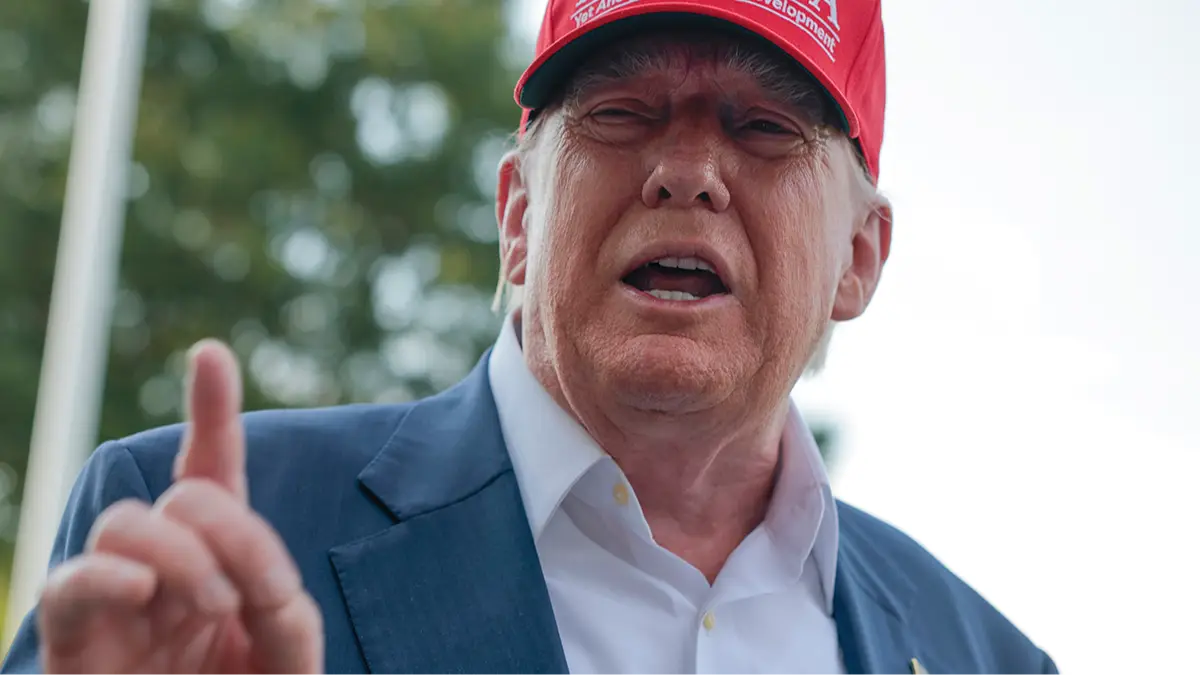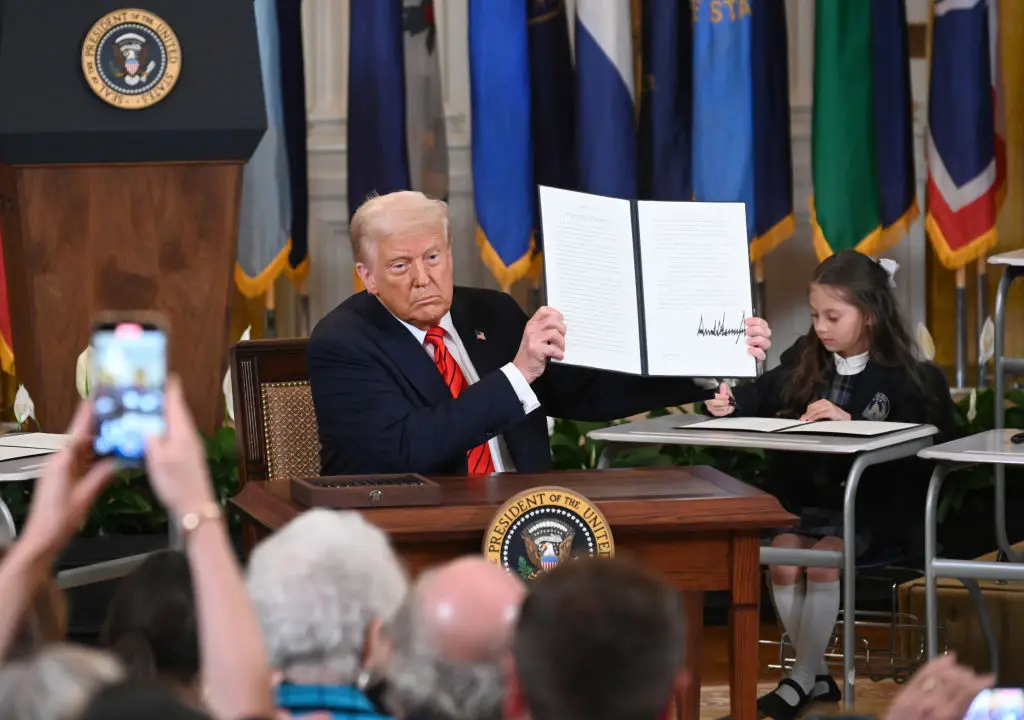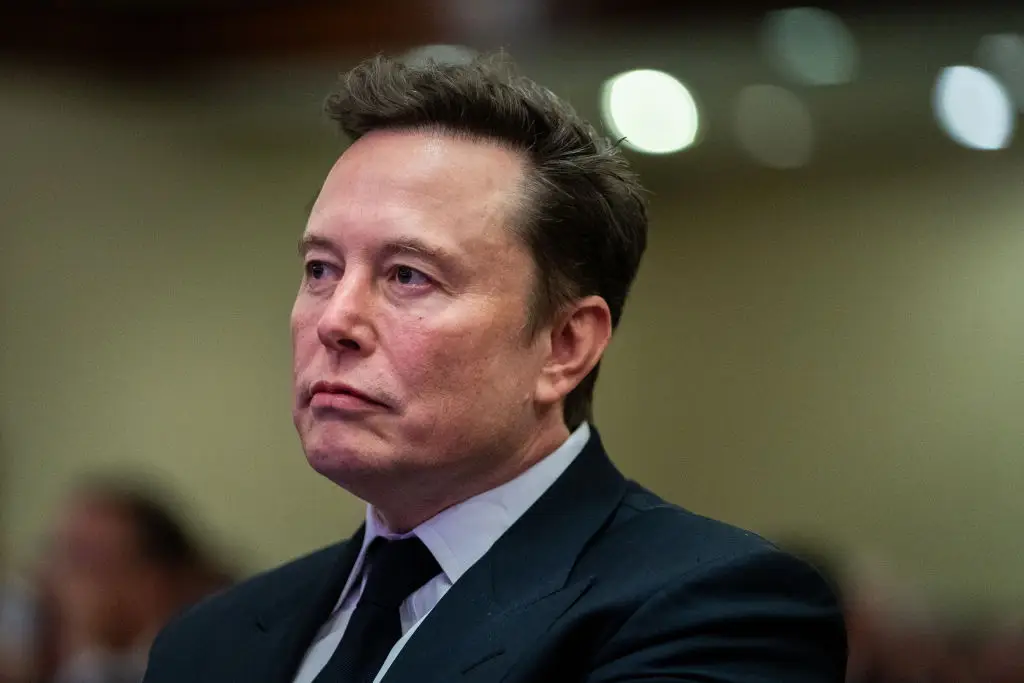
This Independence Day, Donald Trump has double the reason to celebrate.
That's because today (Friday, July 4), the US president is signing off his 'big beautiful bill,' which was passed in Congress on Thursday (July 3).
Representatives approved the bill with a 218-214 vote.
"There can be no better birthday for America than the phenomenal victory we achieved just hours ago when Congress passed the big, beautiful bill to make America great again," Trump told crowds at a rally in Des Moines, Iowa.
Advert
The almost 1,000-page budget revamp is set to add some $3.4 trillion to the country's national debt (which currently stands at $36.2 trillion) over the next decade.
Among other things, it's set to deliver tax breaks Trump promised when he was running for president in 2024, while also cutting health and food safety programmes.

Tech billionaire Elon Musk is among those speaking out against the bill. The pair's partnership has been volatile following a series of fallings out.
But the former head of the federal budget-cutting DOGE department warned Trump's bill would 'destroy millions of jobs in America and cause immense strategic harm to our country.'
Supporters argue permanent rate cuts will spur investment and wage growth, while critics reckon the benefits are skewed heavily toward the top one percent, widening income inequality.
Here's a break down of what's in the 'Big, Beautiful Bill' and who it impacts...
What’s in Trump's 'Big Beautiful Bill?'
Tax cuts
The bill will extend on the 2017 tax rate cuts Trump put forward during his first presidency, for individuals and corporations.
'Hard working' Americans will see an average increase in take-home pay of more $10,000 per year, according to the White House.
A 15 percent tax cut for Americans earning between $30,000 and $80,000 per year has also been promised, while overtime and tipped workers will save almost $2,000 a year.
Some 40 million families will also be supported by the child tax credit being made permanent.

Welfare rollbacks
The bill will target health programme Medicaid; the largest program providing medical and health-related services to low-income people.
Some 12 million people could now be left without health insurance, according to the Congressional Budget Office.
Cuts to the Supplemental Nutrition Assistance Program (SNAP) - formerly known as food stamps - will also be enforced.
Some 42 million Americans, living across 22 million households, use SNAP, the New York Times reports.
Energy and environment
The bill will repeal several clean-energy tax credits enacted under the Biden administration, including delaying new regulations on methane emissions.
Electric vehicle tax credits are also due to be phased out by September 2025, and EV charging tax credits could be gone by summer 2026.
AI freeze
Trump’s bill originally tried to stop any state or city from making AI-specific rules for 10 years and even threatened to cut $500 million in broadband grants if they did. Almost everyone, from governors and attorneys general to some Republicans, pushed back hard, so the Senate voted 99–1 on July 1 to remove that freeze before the bill passed, as per AP news.
Because the freeze was stripped out, states like California, New York, and Colorado can keep or expand their own AI laws, and there’s no new federal AI law in this bill.
That means the US ends up with a patchwork of state rules and still needs to go through the slower normal process in Congress or federal agencies to get any nationwide AI safeguards in place.

Spending increases
Billions more have been allocated to the Department of Defense, as well as another almost $50 billion for border security and 'wall funding.'
Some $45 billion is being put towards new detention facilities, while $25 billion is going into military expansion.
There will also be bonuses for ICE and Border Patrol agents, as per the Economic Times.
What the 'Big Beautiful Bill' really means
So, high-Income individuals and corporations stand to gain the largest absolute tax savings thanks to reduced top rates and corporate cuts.
Middle income families, meanwhile, will receive modest rate relief, though this is offset in part by higher inflationary pressures.
Low-income Americans and vulnerable populations are hit hard, facing tighter Medicaid work requirements and reduced SNAP benefits, potentially losing coverage or assistance.
Who else has spoken out against the bill?

Thomas Massie was one of just two House Republicans who voted against the bill, and he's voiced his criticism of Trump previously by describing the president's decision to launch strikes in Iran as 'not Constitutional'.
Meanwhile, Trump has branded Massie a 'pathetic loser', and made clear he isn't supportive of his chances in the Republican Primary elections.
Over on X, meanwhile, Musk vowed to throw his support behind Massie during his re-election campaign. He also claimed to have donated to him.
When Massie learned he had Musk's support, he told Fox News Digital: "Elon’s purchase of Twitter and cultivation of the X platform for free speech has already helped my cause immensely.
"It’s allowed me to bypass conventional media to refute the lies of both political parties and to provide transparency about how Congress works and what’s actually inside of the bills we vote on.
"Exposing the worst parts of the Big Beautiful Bill and reasserting Congressional War Powers has recently earned me the ire of the swamp and a fight for my re-election, but my re-election isn’t really about either of those issues specifically.
"It’s a referendum on whether members of Congress can think and act independently based on what’s best for the country, or whether all members of Congress must be reduced to rubber stamps for their respective political parties and swampy special interests.
"I’m extremely thankful to have Elon Musk’s financial assistance to continue my mission as an independent voice in Congress for my constituents."
Topics: Donald Trump, US News, Politics, Money, Health